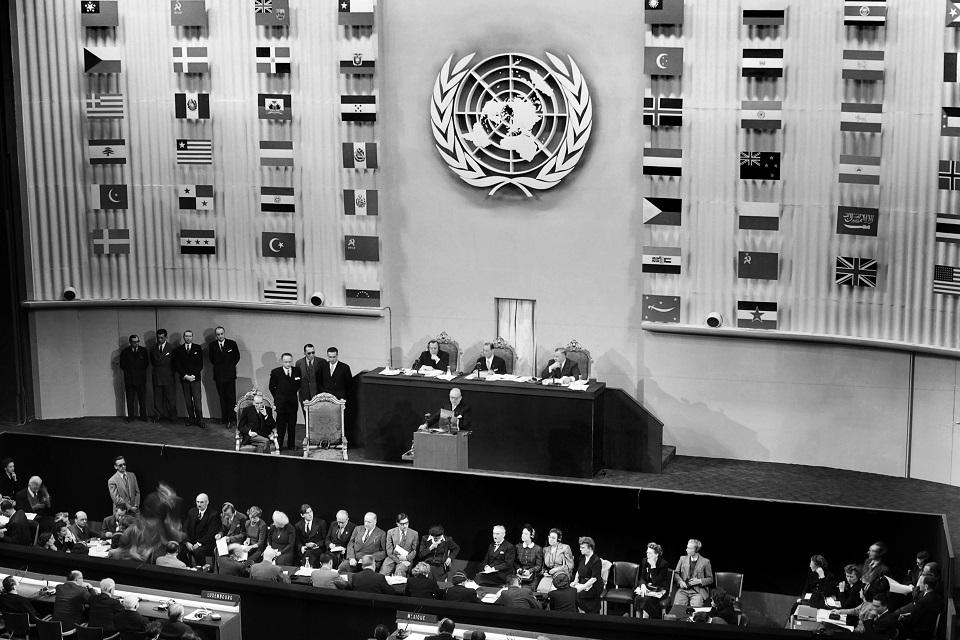The main points of the Universal Declaration of Human Rights

PARIS — Here is a rundown of the main points in the Universal Declaration of Human Rights, adopted by the United Nations in Paris 70 years ago.
The charter addresses four key areas:
- personal rights, such as freedom and equality;
- relationship rights, such as nationality and having a family;
- spiritual and political rights such as the freedom of religion and voting; and
- economic, social and cultural rights, which cover work, wages, education and social security.
Article 1: "All human beings are born free and equal in dignity and rights."
Article 2: All people are "entitled to all the rights and freedoms" contained in the declaration "without distinction of any kind, such as race, color, sex, language, religion, political or other opinion, national or social origin, property, birth or other status."
Article 3: "Everyone has the right to life, liberty and security of person."
Article 4: "No one shall be held in slavery or servitude; slavery and the slave trade shall be prohibited in all their forms."
Article 5: "No one shall be subjected to torture or to cruel, inhuman or degrading treatment or punishment."
Article 9: "No one shall be subjected to arbitrary arrest, detention or exile."
Article 12: "No one shall be subjected to arbitrary interference with his privacy, family, home or correspondence, nor to attacks upon his honor and reputation."
Article 13: "Everyone has the right to freedom of movement... to leave any country, including his own, and to return to his country."
Article 14: All people have "the right to seek and to enjoy in other countries asylum from persecution."
Article 16: All women and men of "full age, without any limitation due to race, nationality or religion, have the right to marry and to found a family."
They are also "entitled to equal rights as to marriage, during marriage and at its dissolution."
Marriage "shall be entered into only with the free and full consent of the intending spouses."
Article 18: "Everyone has the right to freedom of thought, conscience and religion." — Agence France-Presse



